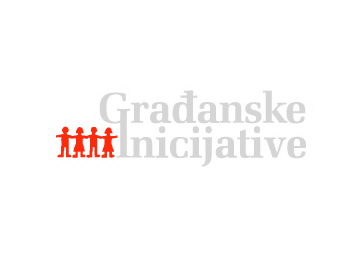 Civic Initiatives (CI), working in cooperation with Civil Rights Defenders (CRD), have presented the main findings of the study “Evaluation of the Effects of the Subject Civic Education – 10 Years Later”, on Monday, 1 April 2019, at 12:00 at the EU Info Centre.
Civic Initiatives (CI), working in cooperation with Civil Rights Defenders (CRD), have presented the main findings of the study “Evaluation of the Effects of the Subject Civic Education – 10 Years Later”, on Monday, 1 April 2019, at 12:00 at the EU Info Centre.
As 18 years have passed since the introduction of civic education into our national school system, the subject of this study is an evaluative analysis of the effects of the subject Civic Education (CE) and insight into potential changes to these effects through comparisons with the results of a similar study implemented 10 years prior (2009). Aiming for a comprehensive analysis of the status of this subject and its effects on the knowledge and views of students, data has been collected from various sources, primarily from the students of final grades of secondary schools, followed by CE teachers and principals of the schools where the survey was implemented.
The results have shown that the students of the schools that participated in the study are “little interested in political events and social engagement, and have medium-level familiarity with current political events, mainly informing themselves online (75 percent) and through TV (53 percent)”.
Young people are also “Eurosceptic” to a greater extent, thus, when responding to the question of how important they believe it is for Serbia to become an EU member state, “only 11 percent of them said it is very important, while 25 percent replied not at all”.
Regarding social distance towards members of other minority groups, “it is generally not expressed, but it does exist against Albanians (36 percent), members of the LGBT+ population (41 percent) and persons infected with AIDS (40 percent)”.
Regarding their knowledge of the subject of Civic Education (CE), students have the “least dominance over terms such as racism or ethnocentrism, followed by the activities of certain international organizations, the role of citizens in a democratic society, while on the other hand they have a good grasp of topics such as division of powers”.
Compared to the results of a similar study implemented in 2009, young people have shown a higher level of knowledge. Furthermore, students are “mainly satisfied with the different aspect of teaching, teacher competences and the atmosphere of CE classes”. Two thirds of principals believe CE should be a mandatory subject, while teachers are mainly unsatisfied with the lack of textbooks.
The survey identified problems such as lack of systemic support for the subject, lack of manuals and teaching materials, insufficient support by the competent ministry, and the attitude towards CE of other stakeholders in the educational process.
The survey tested student knowledge on CE and their views on this subject and democratic values, along with the views of teachers and principals on the same issues. The sample covered 1073 secondary school students, 36 teachers and 20 principals.
The views of the general population were surveyed by the IPSOS marketing company over a sample of 1076 adult citizens of the Republic of Serbia.
The survey was implemented as part of the project “Defence of Human Rights in Classrooms” with the organization Civil Rights Defenders.
Source: www.gradjanske.org
 Government of the Republic of Serbia
Government of the Republic of Serbia















 pdf [271 KB]
pdf [271 KB]
Leave a Comment